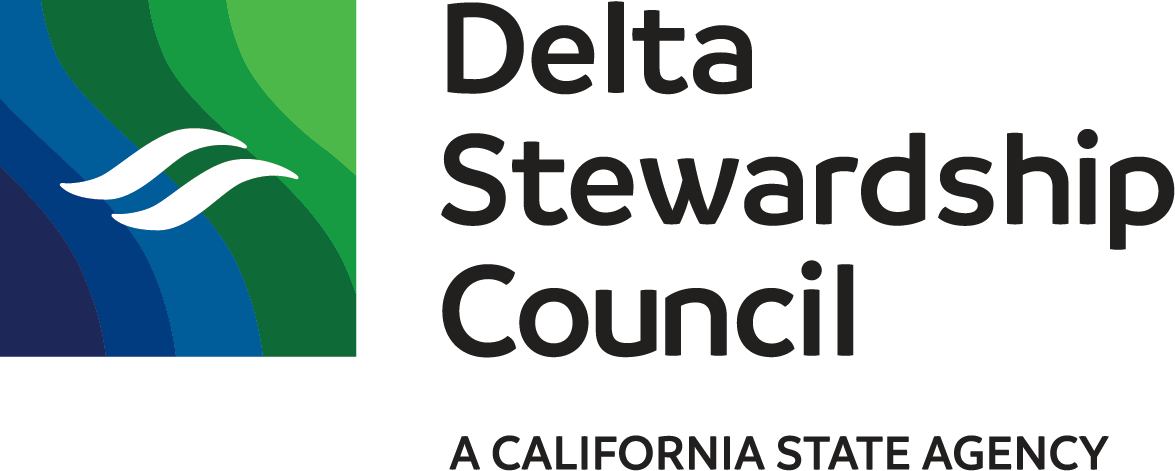Delta Independent Science Board Members
The Delta Independent Science Board (Delta ISB) is comprised of 10 members from different disciplines across the United States. The term of office for a Delta ISB member is five years and a member may serve two terms for a total of 10 years. The Delta ISB is made up of three chairpersons from the Delta ISB membership: The chair, the chair elect, and the past chair. These chairpersons are elected by members of the Delta ISB. Once elected, a Delta ISB member joins the leadership team as the chair elect for two years before becoming the chair, which is also a two year-term. Upon completion of the term as chair, the Delta ISB member serves as past chair for another two years before stepping down from the leadership team.
Delta ISB members are:
Lisa Wainger - Chair
Research Professor, University of Maryland Center for Environmental Science
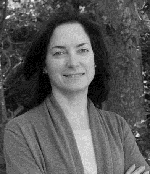
Dr. Lisa Wainger researches the optimal design of environmental restoration investments using a suite of ecological and economic models to evaluate costs, benefits and risks of options and to identify incentive changes that could motivate action. Dr. Wainger pioneered techniques to include land spatial configuration into economic valuation and wetland mitigation policy. She is also known for work developing economically-based non-monetary benefit indicators to improve the representation of tradeoffs in natural resource decision-making. As a research professor at an interdisciplinary research center, University of Maryland Center for Environmental Science, Chesapeake Biological Laboratory, she has published widely on water quality, invasive species management, ecosystem service valuation, aquaculture, and commercial and recreational fishing, among other topics. She received her Ph.D. (environmental and ecological economics) from the University of Maryland, College Park and her B.S. (earth science) from the University of California, Santa Cruz. She serves on multiple science advisory boards to governmental and non-governmental organizations and is past chair of the Scientific and Technical Advisory Board to the Chesapeake Bay Program partnership.
Inge Werner - Chair Elect
Director, Swiss Centre for Applied Ecotoxicology, Dübendorf, Switzerland (Retired)
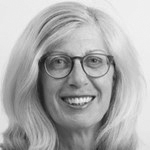
Dr. Inge Werner's area of expertise is ecotoxicology. Her professional experience ranges from academic research in aquatic toxicology to a broad applied approach to risk and impact assessment in both aquatic and terrestrial environments. Dr. Werner recently retired from the Swiss Centre for Applied Ecotoxicology, where she served as Director from 2010 to 2019. The Centre serves as the primary Swiss knowledge hub for research and development, consulting, and further education in ecotoxicology. In Switzerland, she worked closely with federal and local environmental agencies to improve environmental monitoring programs and cooperated in research projects with academic institutions throughout Europe and the United States. Projects included effect-based ecotoxicological assessments of wastewater treatment technologies and comprehensive assessments of environmental risks due to pesticides. Prior to her directorship in Switzerland, she was director of the Aquatic Toxicology Laboratory and Adjunct Professor at UC Davis. She was on the faculty at UC Davis from 1999 to 2010 and worked extensively in the Delta.
She has served on numerous panels and working groups, most recently on the Scientific Advisory Council of the German Federal Institute of Hydrology, which is the primary German institution advising the federal ministries in matters of utilization and management of federal waterways, and the Guidance Committee for the Assessment of Surface Water Resources in Switzerland, which advises decision-makers in all aspects of surface water stewardship. She has a master's degree in limnology from Albert-Ludwig University in Freiburg, Germany, and a Ph.D. degree in aquatic ecotoxicology from Johannes-Gutenberg University in Mainz, Germany. She has published 160 scientific articles.
Virginia Dale
Adjunct Professor, University of Tennessee
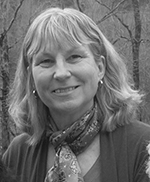
Dr. Virginia Dale is an adjunct professor at the University of Tennessee and Corporate Fellow Emeritus at Oak Ridge National Laboratory. Dr. Dale’s research focuses on environmental decision-making, ecosystem management in view of disturbances and climate change, sustainability of agricultural landscapes and energy systems, and stakeholder engagement. She earned a M.S. in Mathematics from the University of Tennessee and a Ph.D. in Mathematical Ecology at the University of Washington. Her work has resulted in 11 books and more than 260 scientific articles. She has served on national scientific advisory boards for five U.S. agencies (the Departments of Agriculture, Interior, Energy, and Defense, and the Environmental Protection Agency) and several committees of the National Academies of Science. She was among the international scientists who contributed to the Intergovernmental Panel on Climate Change Scientific Assessment that in 2007 received the Nobel Peace Prize with former Vice President Al Gore. In 2006, she was the Distinguished Scientist for Oak Ridge National Laboratory. She was the Distinguished Landscape Ecologist of the US Regional Association of the International Association for Landscape Ecology in 2013 and chair of that society from 2000 to 2002.
Tanya Heikkila
Co-Director, Center for Policy and Democracy; Professor, School of Public Affairs, University of Colorado, Denver
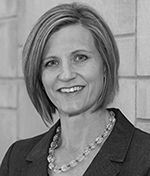
Dr. Tanya Heikkila is a leading scholar in the field of environmental policy and governance and is a professor at the University of Colorado Denver's School of Public Affairs, where she co-directs the Workshop on Policy Process Research. Previously, Dr. Heikkila was an aAssistant pProfessor at Columbia University’s School of International and Public Affairs (2002 to 2009) and a post-doctoral fellow at Indiana University’s Ostrom Workshop in Political Theory and Policy Analysis (2001 to 2002). Her scholarship focuses on how environmental governance processes can be designed to facilitate collaboration, foster learning, and resolve conflicts. Her research has explored these issues in the context of interstate watersheds, large-scale ecosystem restoration, and unconventional oil and gas development. She has over 100 publications, including six books and over 50 peer-reviewed articles. In addition, She has conducted training workshops for practitioners of environmental governance, served as a member of the Aspen Institute Dialogue on Energy Governance (2016 to 2018), and has taken on various leadership roles in interdisciplinary research programs. She holds an M.P.A. (1996) and Ph.D. (2001) from the University of Arizona.
Thomas L. Holzer
Scientist Emeritus, United States Geological Survey
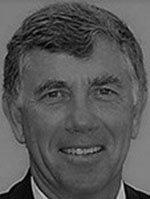
Dr. Thomas Holzer is an engineering geologist. His areas of expertise are in earthquake-induced liquefaction, including evaluating hazards and risks of liquefaction, and land subsidence caused by groundwater withdrawal. Dr. Holzer served at the United States Geological Survey from 1975 to 2016 (he is now an emeritus scientist), and held an appointment as a consulting professor at Stanford University from 1994 to 2016. He has worked on many notable research projects, such as studying global earthquake fatalities, hazard mapping for liquefaction in the San Francisco Bay Area and other regions, investigating ground failure caused by groundwater withdrawal, and evaluating impacts of the 1989 Loma Prieta earthquake. He has published more than 100 peer-reviewed publications. In addition, he has served on many advisory panels, including chairing the National Academy of Sciences/National Research Council Panel on Land Subsidence from 1985 to 1991 and the committee that developed the 2003 plan for coordinating post-earthquake investigations by Federal agencies. He received his Ph.D. in Geology and M.S. in Hydrology from Stanford University, and his B.S.E. in Geological Engineering from Princeton University.
Diane McKnight
Professor in the Department of Civil, Environmental and Architectural Engineering and a Fellow of the Institute of Arctic and Alpine Research at the University of Colorado.
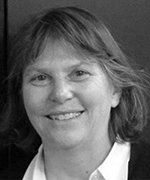
Dr. Diane McKnight began her career with the U.S.United States Geological Survey. Her research focuses on the coupling of hydrology, aquatic ecology, and water quality. Dr. McKnight has studied streams, lakes, and wetlands in diverse regions, including the arctic tundra in Alaska, polar desert streams in Antarctica, alpine lakes in the Rocky Mountains, and wetlands in Botswana. She has been pPresident of the American Society of Limnology and Oceanography and editor of Journal of Geophysical Research-Biogeosciences and has served on numerous committees for the National Research Council. She is a fellow of the American Geophysical Union (AGU) and the American Association for the Advancement of Science (AAAS), a member of the National Academy of Engineering, and received the John Dalton Award from the European Geophysical Union. From 2015 to 2018, she served as a program officer with the Arctic Program at the National Science Foundation (NSF). She is currently the chair of the Executive Board of the Long Term Ecological Research Network.
Anna Michalak
Director, Department of Global Ecology, Carnegie Institution for Science, Stanford, California
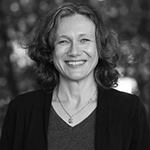
Dr. Anna Michalak’s research interests lie in two areas. The first is assessing the impacts of climate change on inland and coastal water quality via influences on nutrient delivery to, and on conditions within, water bodies. The second area is understanding and quantifying the cycling and emissions of greenhouse gases at the Earth’s surface at urban to global scales – scales directly relevant to informing climate and policy – primarily through the use of atmospheric observations that provide the clearest constraints at these critical scales. Dr. Michalak’s approach is highly data-driven, with a common methodological thread being the development and application of methods for optimizing the use of limited in situ and remote sensing environmental data. She is the director of the Department of Global Ecology of the Carnegie Institution for Science and a professor in the Department of Earth System Science and the Department of Biology at Stanford University. Previously, she was the Frank and Brooke Transue Faculty Scholar and Associate Professor at the University of Michigan in Ann Arbor, with appointments in the Department of Civil and Environmental Engineering and the Department of Atmospheric Oceanic and Space Sciences.
She holds a Ph.D. and M.S. in Civil and Environmental Engineering from Stanford University and a B.Sc.(Eng.) in Environmental Engineering from the University of Guelph, Canada. She is the lead author of the U.S. Carbon Cycle Science Plan, chair of the Scientific Advisory Board for the European Integrated Carbon Observation System, and member of the National Academies Committee on Earth Sciences and Applications from Space. She has published 139 scientific papers.
Robert Naiman
Emeritus Professor, School of Aquatic & Fishery Sciences, University of Washington
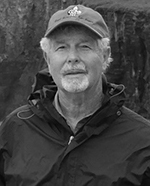
Dr. Robert Naiman’s research explores the structure and dynamics of river ecosystems – including riparian vegetation, and the role of large animals in influencing ecosystem dynamics. These activities laid the foundation for 11 books on aquatic ecology and watershed management and produced more than 230 journal articles. Dr. Naiman is an Institute for Scientific Information (ISI) Highly Cited Researcher and former United Nations Educational, Scientific and Cultural Organization (UNESCO) Chair in Sustainable Rivers. He has chaired several national and international committees on water issues, participated on advisory panels for the US National Science Foundation, chaired UNESCO committees, consulted for government research organizations in France and South Africa, and advised conservation organizations as well as private foundations. In recognition for his research and collaborations, he was awarded the title of Doctor Honoris Causa by the Université Paul Sabatier (Toulouse, France) and received the Eminent Scientist award from the Ecological Society of America. Career highlights include being a research scientist at the Woods Hole Oceanographic Institution, director of Streamside Studies at the University of Washington, visiting scientist with the Centre National de la Recherche Scientifique (Toulouse, France), visiting professor at the University of the Witwatersrand (Johannesburg, South Africa), and professor at the Centre of Excellence in Natural Resource Management at the University of Western Australia. Until recently he was a member of the Independent Scientific Advisory Board, and the Independent Review Panel, for the restoration and management of the Columbia River (USA). His academic degrees are from California State Polytechnic University (B.S.), University of California, Los Angeles (M.A.), and Arizona State University (Ph.D.).
Jayantha Obeysekera
Director, Sea Level Solutions Center, Institute of Environment, Florida International University, Miami

Dr. Jayantha Obeysekera has extensive national and international experience in the planning and management of water resources systems, with particular emphasis on modeling and implications of climate change. Before joining the Florida International University, Dr. Obeysekera managed a large group of hydrologic and environmental modelers, directed the modeling associated with the Comprehensive Everglades Restoration Program and climate change projections, and helped establish the Interagency Modeling Center at the South Florida Water Management District. He has served as a member of several committees of the National Academy, including those associated with the Sustainable Water & Environmental Management in California Bay-Delta, California Bay Delta Conservation Plan, Edwards Aquifer in Texas, and the Klamath River in Oregon. He was a member of the federal advisory committee that directed the development of the 2014 National Climate Assessment and co-authored several sea-level rise projections reports published by the National Oceanic and Atmospheric Administration. He was also a member of the Coastal Assessment Regional Scenario Working Group associated with the Department of Defense in the United States. Currently, he serves as a director of the Sea Level Solutions Center at Florida International University.
He holds a bachelor’s degree in Civil Engineering from the University of Sri Lanka, M. Eng. from the University of Roorkee, India, and a Ph.D. in Civil Engineering from Colorado State University. He has co-authored over 70 research articles in numerous peer-reviewed journals. He is a recipient of the 2015 Norman Medal of the American Society of Civil Engineers for a technical paper that makes a definitive contribution to engineering.
Kenneth Rose
France-Merrick Professor in Sustainable Ecosystem Restoration, Horn Point Laboratory, University of Maryland Center for Environmental Science
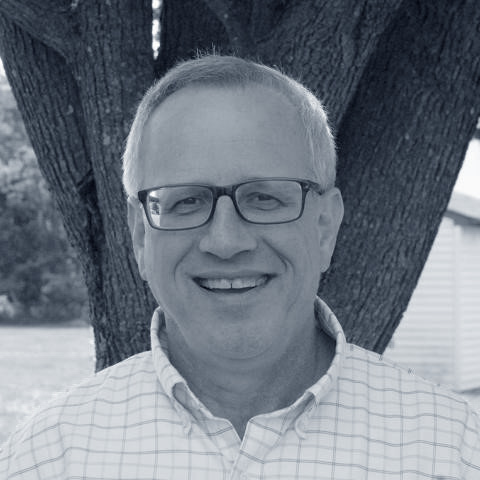
Dr. Kenneth Rose is the France-Merrick Professor in Sustainable Ecosystem Restoration at Horn Point Laboratory of the University of Maryland Center for Environmental Science. Prior to coming to UMCES, Dr. Rose was a professor at Louisiana State University and a research staff member at Oak Ridge National Laboratory. His research centers on using mathematical and computer simulation modeling to predict and better understand fish population and food web dynamics in estuaries, lakes, reservoirs, and oceans. He has been a member of multiple steering and advisory committees providing scientific guidance and oversight, including for the National Science Foundation, California Delta Science Program, United States GLOBEC Program, and US Army Corps of Engineers. Recently, Dr. Rose served as a member of the National Academy of Sciences’ Committees on Sustainable Water and Environmental Management in the California Bay-Delta, Evaluating the Effectiveness of NOAA’s (Fisheries) Stock Rebuilding Plans, Review of the Edwards Aquifer Habitat Conservation Program, and Effective Monitoring to Evaluate Ecological Restoration in the Gulf of Mexico. Dr. Rose was recently awarded the Award of Excellence (for lifetime achievement) from the American Fisheries Society.
Former Delta ISB Members:
- Dr. Brian Atwater, United States Geological Survey, 2010-2017
- Dr. Stephen Brandt, Oregon State University, 2014-2024
- Dr. Elizabeth Canuel, The College of William & Mary, 2010-2020
- Dr. James Cloern, United States Geological Survey, 2020-2021
- Dr. Tracy Collier, Puget Sound Partnership (Retired), 2010-2020
- Dr. Harindra Joseph Shermal Fernando, University of Notre Dame, Notre Dame, Indiana, 2012-2022
- Dr. Michael Healy, University of British Columbia, 2010-2012
- Dr. Edward Houde, University of Maryland, 2010-2013
- Dr. Jay Lund, University of California, Davis, 2012-2022
- Dr. Judith Meyer, University of Georgia, 2010-2014
- Dr. Jeff Mount, University of California, Davis, 2010-2012
- Dr. Richard Norgaard, University of California, Berkeley, 2010-2020
- Dr. Vince Resh, University of California, Berkeley, 2010-2020
- Dr. John Wiens, Colorado State University. 2010-2020
- Dr. Joy Zedler, University of Wisconsin, Madison, 2015-2020

